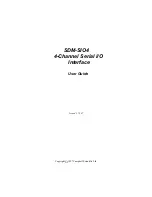
Section 2
Environmental aspects
2.1
Sustainable development
Sustainability has been taken into account from the beginning of the product design
including the pro-environmental manufacturing process, long life time, operation
reliability and disposing of the protection relay.
The choice of materials and the suppliers have been made according to the EU RoHS
directive (2002/95/EC). This directive limits the use of hazardous substances which
are the following:
Table 1:
Maximum concentration values by weight per homogeneous material
Substance
Proposed maximum concentration
Lead - Pb
0.1%
Mercury - Hg
0.1%
Cadmium - Cd
0.01%
Hexavalent Chromium Cr (VI)
0.1%
Polybrominated biphenyls - PBB
0.1%
Polybrominated diphenyl ethers - PBDE
0.1%
Operational reliability and long life time have been assured with extensive testing
during the design and manufacturing processes. Moreover, long life time is supported
by maintenance and repair services as well as by the availability of spare parts.
Design and manufacturing have been done under a certified environmental system.
The effectiveness of the environmental system is constantly evaluated by an external
auditing body. We follow environmental rules and regulations systematically to
evaluate their effect on our products and processes.
2.2
Disposal of a protection relay
Definitions and regulations of hazardous materials are country-specific and change
when the knowledge of materials increases. The materials used in this product are
typical for electric and electronic devices.
All parts used in this product are recyclable. When disposing of a protection relay or
its parts contact a local waste handler who is authorized and specialized in disposing
of electronic waste. These handlers can sort the material by using dedicated sorting
processes and dispose of the product according to the local requirements.
1MRS757641 E
Section 2
Environmental aspects
620 series
7
Installation Manual
















































